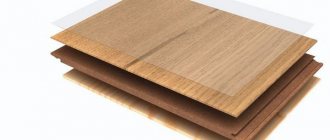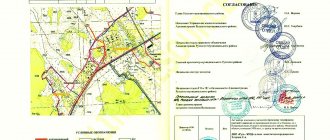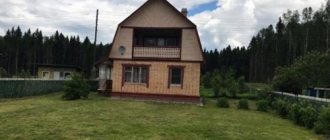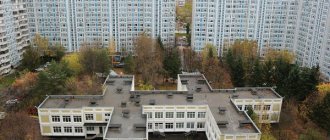The main features and differences between individual housing construction, SNT and DSK The housing issue is painful for many. There are several ways to solve the problem. Many are attracted by the advantages of individual housing construction or DSK. Some find merit in investing their own time and effort in the SNT format.
Moscow, st. Alabyan, house 12, building 6
Individual housing construction is a special format for solving the housing problem, which involves the organization and implementation of private construction. In this case, the house is built by the efforts and material resources of individuals.
SNT is a formation of a non-profit type of horticultural direction, which involves uniting citizens into a separate group to resolve issues regarding individual farming. A dacha cooperative (DSC) is created by citizens for the purpose of constructing dacha locations, where private houses will be supplemented by land plots for household needs.
Differences between individual housing construction and SNT and DSK
The main difference between these two categories is the target direction. If individual housing construction involves the construction of residential buildings for individual purposes, then the formation of a gardening group is intended to conduct various areas of agriculture, on the territory of which it is quite problematic to build any private buildings. In this case, DSC acts as a kind of alternative option, combining the qualities of the previous two categories.
It is also worth highlighting a number of the following differences:
- Category of land. Individual construction is possible only within the boundaries of a populated area; a horticultural society is formed on the basis of agricultural land;
- Registration moments. In areas where individual construction was carried out, residents are freely registered, which is impossible in the DSK and SNT format;
- Prospects. By definition, areas within populated areas will be replenished with new infrastructure facilities, communication elements, and other benefits of civilization. This is not typical for the gardening format.
Why is this organization created?
Uniting dacha owners into this organization can bring many benefits. For example, in the event of an urgent situation (for example, a mudflow in mountainous areas), all members of the dacha cooperative can develop a plan for eliminating the consequences at a general meeting. The result can be achieved much faster than with an individual solution to the problem.
Important nuances
Having determined what individual housing construction, DSK and SNT are, we can draw conclusions regarding the actuality of one or another format. Today, even experienced lawyers have difficulty grasping the difference between DSK and SNT. However, it is the dacha non-profit partnership that is considered the most profitable.
The main disadvantage is difficulties with registration, but this nuance can be solved. Among the main advantages are the low cost of the construction process, the comfort of living itself, and the ability to combine life in an individual home with the opportunity to run your own household.
Individual construction will cost more. However, it is easy to register on your site, there will be no problems with permanent registration, registration of a tax deduction for built housing, and there is also the opportunity to use certain social norms. The main inconveniences during construction are associated with the need to constantly coordinate all construction stages and the formation of individual communication nodes with the relevant organizations and services.
What legislative acts are regulated by the KDP?
In order to understand the question of what a dacha cooperative is, the most correct thing would be to open the law and become familiar with this phenomenon.
First of all, it is advisable to turn to the acts regulating the basics of civil legal relations.
Thus, the Civil Code of the Russian Federation regulates legal relations arising during the formation of non-profit corporate organizations (Article 123.1).
The Federal Law “On gardening, gardening and dacha non-profit associations of citizens” also contains information on the formation and existence of dacha consumer cooperatives.
Reference! Regulatory legal acts in this area of legal relations do not imply the possibility of permanent registration in the territory of cooperatives.
Features of dacha non-profit associations: in which village is it better to buy a plot?
The management of a country village can be carried out using the services of a management company or through an association created by the owners of the land plots themselves. Such associations can be in the form:
- SNT, ONT or DNT - gardening, horticultural and dacha non-profit partnership;
- ONP, SNP and DNP - vegetable gardening, gardening and dacha non-profit partnership;
- OPK, SPK and DPK are vegetable gardening, gardening and dacha consumer cooperatives.
Their activities are regulated by the Federal Law “On GARDENING, VEGETABLE AND COUNTRY NON-PROFIT ASSOCIATIONS OF CITIZENS” No. 66-FZ of April 15, 1998 .
The main differences between these associations are the legal regime of common property, as well as the responsibility of members for the obligations of a legal entity.
Main features of partnerships
In a partnership, common property acquired or created by such a partnership at the expense of targeted contributions is the joint property of its members. Moreover, none of the partners has a allocated share in such property. Common property acquired or created from entrance or membership fees, income from business activities or other income is the property of such a partnership as a legal entity.
Members of a partnership are not liable for its obligations, and such a partnership is not liable for the obligations of its members.
Main features of cooperatives
Cooperatives create funds from the entrance and share contributions of their members. In this case, the common use property is owned by such a cooperative. Each summer resident gives the entry fee “gives forever”, i.e. when he leaves the cooperative or dies, this money is not returned, but only shares are paid - to the former member of the dacha community or to his heirs. In addition, in order to participate in general meetings, the heir will need to join the dacha cooperative, having received the consent of the majority of its members. One of the main disadvantages of this form of management for dacha owners is the need to be responsible for the obligations of the cooperative and, in the event of losses of the legal entity, to cover them through additional contributions.
Main features of partnerships
The property of a partnership as a legal entity is property of common use acquired or created with contributions from members of such an association. Members of a partnership are not liable for its obligations, and such a partnership is not liable for the obligations of its members.
- The main advantage of any non-profit community compared to a management company is the ability of each owner of a land plot to know what and in what quantities the funds contributed by him are spent. Of course, resolving any organizational and financial issue together is not an easy task, but this is already a headache for the chairman and members of the board.
- It is important to understand that federal legislation regulates only general issues of the activities of dacha associations, while the size and procedure for payment of shares and contributions, the community management system and other subtleties are stipulated in the Charter of a particular organization. Therefore, before purchasing a plot or a finished cottage, you should carefully study this document.
How unusual is it to ask a girl to marry me?
I jumped with a parachute right over the dacha cooperative where she and her friends were having a barbecue....came down from the sky....got down on my knee, looked at her....said the right words, and she agreed....maybe it will help, go for it;)
Well, hide the ring in some kind of cake and give it to her, she will feel the ring and at that moment you will say the words
Remember: everything ingenious is simple
It will be very romantic if you do this at the place where you met... And the main thing is that it should be unexpected...
silently
On New Year's night! When the chimes strike, when everyone is shouting hurray! Definitely not expected. My young man works at night, and in the morning he brings me all sorts of goodies, I would like him to wake up the sword not with some goodies, but with a small box, or with a ring on his finger
Fuck this yoke
Pros and cons of purchasing plots on agricultural land
The status of land plots is determined by two parameters: the category of land and the type of permitted use.
This is interesting: How can paternity be established?
Lands may fall into the following categories: lands of populated areas, agricultural lands, lands of specially protected areas, lands of industrial purposes (as well as transport, communications, radio broadcasting, defense, etc.), lands of the forest fund, lands of the water fund, etc.
The type of permitted use of a land plot is one of the main characteristics of a land plot, which affects the determination of the legal regime for the use of land and is established in accordance with the zoning of territories.
The main types of permitted use of land include: individual housing construction (IHC), personal subsidiary farming (LPH), vegetable gardening, horticulture, summer cottage construction, agricultural production, farming, low-rise housing construction, residential and commercial development, etc.
As a rule, to meet the needs of citizens in organizing dachas, agricultural lands are allocated for dacha construction, gardening or vegetable gardening, and not for individual housing construction. This imposes certain restrictions on the use of the land, but, at the same time, provides a number of advantages to its owner. One of these advantages is significant savings when paying land tax.
Fundamental differences between agricultural lands with different types of permitted use:
On a gardening plot you can grow berries, vegetables, melons or other crops and potatoes. On such land it is impossible to build permanent buildings, that is, residential buildings with a foundation. The biggest thing you will be allowed to install is a non-permanent residential building in the form of a temporary house or trailer.
Options for temporary shelters that are allowed to be installed on plots for gardening
On lands for gardening, in addition to the crops listed for gardening, you can grow fruit trees, as well as build a permanent residential building and register it as property. However, registration is not allowed in such a building.
On agricultural lands intended for summer cottage construction, you can engage in gardening and vegetable gardening, as well as build residential buildings and register in them.
Construction parameters on dacha plots and the construction procedure are regulated by SNiP “Planning and development of territories of horticultural (dacha) associations of citizens” and SP “Development, coordination, approval and composition of design and planning documentation for the development of territories of horticultural (dacha) associations of citizens.”
The specified standards regulate the minimum height of a living space, which must be at least 2.2 m, the minimum height of utility rooms - at least 2 m, the height of the cellar - at least 1.6 m.
There are no size limits, and there are no requirements for the number of storeys.
The only restriction applies to plots with an area of 0.12 hectares, during the development of which no more than 30% of the area can be used for a house and auxiliary buildings.
In accordance with the Town Planning Code and the Law on State Registration of Rights to Real Estate and Transactions with It, permission to build a country house or garden house is not required.
On plots for summer cottage construction you can build houses of any type
The optimal solution to the dacha issue is to purchase an agricultural land plot with the type of permitted use “for dacha construction” in a village with the organizational and legal form of DNP (dacha non-profit partnership). In this case, the owner of the land receives wide opportunities in choosing options for constructing a residential building with the possibility of registration in it, and can also grow any agricultural crops, fruit trees and other green spaces on the site. And the “partnership” will allow not only to organize the work of the dacha village and maintain common property in good repair, but also to control the expenditure of funds collected from members of the DPP for these purposes.
How to register in a garden house?
If Law 217 recognizes a permanent residential building on SNT land as a home, then registration in it will be normal. But this is only a guess, because there is nothing intelligible in the law on the issue of registration. We can only wait for additional regulations that will spell out regulations for registering citizens in a garden house.
Previously, citizens sought registration in a garden house only through court proceedings. At the same time, they had to prove that it was capital and suitable for year-round use.
Dacha cooperative - good or evil?
A dacha cooperative, also called a dacha construction cooperative, a dacha non-profit partnership, DSK or DNT, respectively - such an organization provides a number of advantages. Today, a cooperative or partnership does not provide the opportunity for permanent registration - but creates it on the basis of self-sufficiency, giving people the opportunity to build and operate dachas in the most comfortable conditions.
Of course, the operation of dachas involves some collective expenses, and the members of the partnership jointly bear all these expenses, paying amounts that are determined by the meeting. As a rule, the construction of utility rooms and summer cottages is carried out according to standard designs, on land that is allocated for perpetual use to this very cooperative.
In this case, work on the land plot begins after an amount corresponding to the full cost of the planned construction has been deposited into the bank. The size of the share for a member of the DSK is determined by the cost of a separate dacha or one dacha. The transfer of one's ownership to children, spouse, or parents can be carried out with the consent of the general meeting - if the use of the dacha was previously joint. The share of the DSK member will be returned to him after leaving the cooperative, and if we talk about the share of the deceased owner, it will pass to the heirs while maintaining property rights, if the heirs used this dacha during the life of this member.
Borders
If we talk about a dacha non-profit partnership, in other words, DNT, then here all the plots are owned, they are limited, and it is convenient to handle them. Thus, boundary issues in a co-op can be a big problem - this is a clear disadvantage. DNTs are usually located on farmland, while cooperatives are mostly located within the boundaries of cities and towns, and this creates problems with the environmental situation, and not only.
This is interesting: How to pay utility bills via the Internet
But both options also have common problems. As a rule, in both cases we are talking about very small plots of land that were issued to people several decades ago, and these lands are often located in far from the best places - near swamps, under power grids, and so on. This is not very attractive, and when purchasing such land, you should in any case go to the site and examine the potential purchase in person. With DNP, in this regard, everything is usually much better, but nevertheless, such suburban areas are also not without surprises.
What about taxes?
In practice, dacha garden cooperatives are pleased with the fact that taxes here are not at all high, they are approximately at the same level as private household plots. At the same time, taxes on DNT and individual housing construction turn out to be very substantial, and this stops people who just need a dacha and nothing more.
It is worth noting one more issue closely related to finance. As a rule, the infrastructure in cooperatives is very bad. A cooperative dacha is exactly the kind where you will have to take with you a bunch of food, cartons of cigarettes, several loaves of bread, and so on. It is unlikely that you will be able to buy anything locally, and it is good if there is a village nearby where there is at least a kiosk. Summarizing all this, we can emphasize that for the most part, this option for country real estate may well make you look into the last century and enjoy all the delights of the outback as they are.
What to choose?
If you just need a dacha, if you don’t want to invest too much money and pay high taxes, if the possibility of registration is not important to you, and you definitely won’t build a cottage here for the whole family to live all year round, a dacha cooperative may be a good solution for you. You won’t have to invest much, the buildings will be ready, you can engage in farming or just relax for your own pleasure. But if you are going to build a cottage or have other solid plans, it would be better to look for another option. Nowadays, the most popular solution is usually individual housing construction, land for individual residential construction, which makes it possible to register and opens up broad horizons for a person who decides to build a capital project.
Application of the Land Code of the Russian Federation in relation to garage cooperatives
3 of the Federal Law of October 25, 2001 N 137-FZ “On the entry into force of the Land Code of the Russian Federation” (hereinafter referred to as Federal Law N 137-FZ) established that the re-registration of the right of permanent (indefinite) use of land plots by garage consumer cooperatives is carried out in the manner established by Art.
36 of the Code. Article 36 of the Code determines the procedure for acquiring rights to land plots that are in state or municipal ownership by citizens and legal entities that own, gratuitously use, economically manage or operationally manage buildings, structures, structures located on these land plots.
Forms of dacha associations: how they differ and which one to prefer
The management of a holiday or cottage community is often entrusted to partnerships created by the residents themselves. Of course, making all decisions by the community of summer residents is not an easy task, but all accounting is transparent and you can control how the money contributed by residents was actually spent (the problem of control usually arises when working with a management company).
Which option should you prefer when organizing such management or choosing a village with an already established system?
The familiar abbreviations SNT, DNT, DNP differ from each other in the organizational and legal form (partnership, partnerships, etc.) and the purposes of creation (for gardening, horticulture, etc.)
Forms of legal entity
Associations of citizens in dacha and garden plots can exist in the form of partnerships, partnerships or cooperatives. These are independent legal entities - non-profit organizations that have property and money on their balance sheet and are independently responsible for their debts.
The main differences between the different forms lie in the regime of property managed by a given legal entity.
In a cooperative, funds are formed from the entrance and share contributions of its members, and shares in the mutual fund (something like the “authorized capital” of cooperatives) are not allocated to shareholders. When leaving the cooperative or the death of a shareholder, the entry fee is not returned, but the share payment is paid to the shareholder or, accordingly, to the heirs. Heirs will not be able to participate in general meetings if they have not independently become members of the cooperative.
In a partnership, contributions can be entrance and membership, from which the property of the partnership itself is formed, as well as targeted (the property acquired with them is owned by the partners in common joint ownership, i.e., without the allocation of shares, even ideal ones). In addition, the partnership owns property purchased with income from its business activities.
In a partnership, all property acquired with the contributions of the participants is the property of the partnership.
The main issues in all of the listed legal entities are decided by the general meeting: this is the election of the board, the purchase of a common land plot, changes made to the Charter, approval of expenses and income for a certain period. Current issues are dealt with by the executive body (chairman or board).
It is necessary to take into account that the laws on gardening and vegetable gardening associations, on consumer cooperation, regulating the activities of the above legal entities do not provide for all the details. Issues such as the size of shares and the procedure for their contribution, the choice of an organization’s management system, each SNT or DNP decides independently, providing for the corresponding rules in its Charter.
Video: How to recognize a garage as your property?
The video explains in detail the procedure for registering ownership of a garage, explains what difficulties may arise in the registration procedure and how to resolve them
The issue of car storage is extremely relevant for city residents. Often, car owners live in apartment buildings and do not want to store their “iron horses” under their windows. In order to organize the safest and most convenient storage of cars, it is not uncommon for a city resident to become a full member, acquiring his share in it.
Dear readers! The article describes typical ways to solve legal problems. Your case is individual.
This type of obligation is one of the few in the garage industry that can be officially registered, so for its existence it is important to comply with all legislative nuances concerning the work of this organization. An integral part of a garage cooperative, according to the law, is its chairman, who is a separate caste of leaders. Today we will talk in more detail about his powers, responsibilities and the principle of election.
Garage cooperative - shared ownership
A garage-building or, as is often said, a garage cooperative is an organization that was created by a group of citizens on a voluntary basis and is aimed at providing some conditions for storing their cars, as well as for the rational use of garage buildings.
At its core, the property of all members of the Civil Code is common, but divided into shares. This method of owning property is called shared ownership, therefore the members of the cooperative must maintain the common parts of the property jointly. The activities of the Civil Code are regulated by the legislation of the Russian Federation and the organization’s charter.
According to current laws, the maintenance of common property and, in general, the existence of a cooperative cannot be organized without determining its chairman. In fact, this status gives a member of the Civil Code the powers of a leader. It is important to understand that the citizen elected as chairman must adhere to a number of obligations and take appropriate actions.
The chairman of a garage cooperative is elected by its members; the law does not provide for any other procedure. Co-operators have the right to elect a chairman by majority vote or in another manner provided for by their charter and not contrary to the will of the majority of members of the Civil Code.
The chairman of the cooperative undertakes to carry out his work in accordance with the organization’s charter and current legislation. The activities of this person are accountable, that is, the chairman must be in close contact with the members of the cooperative.
Often their interaction occurs at a general meeting, which is organized when it is necessary to resolve important issues of the Civil Code. It is also worth noting that the chairman has the right to assign tasks to cooperative employees, who undertake to carry them out.
Borders
As a rule, each owner has a limited plot. On the one hand, this gives the owner a lot of convenience. On the other hand, on the contrary, it can prevent the implementation of many decisions made at the meeting of owners. Most often, cooperatives of this type are created on the outskirts of cities, which can cause considerable harm to the environmental situation.
Most often, plots for building a dacha were given in places that were not the most favorable for this: near swamps or near electrical networks. Purchasing this plot in this way may not be profitable. Therefore, before carrying out it, it is advisable to visit this place yourself and evaluate the territory on which the site is located.










